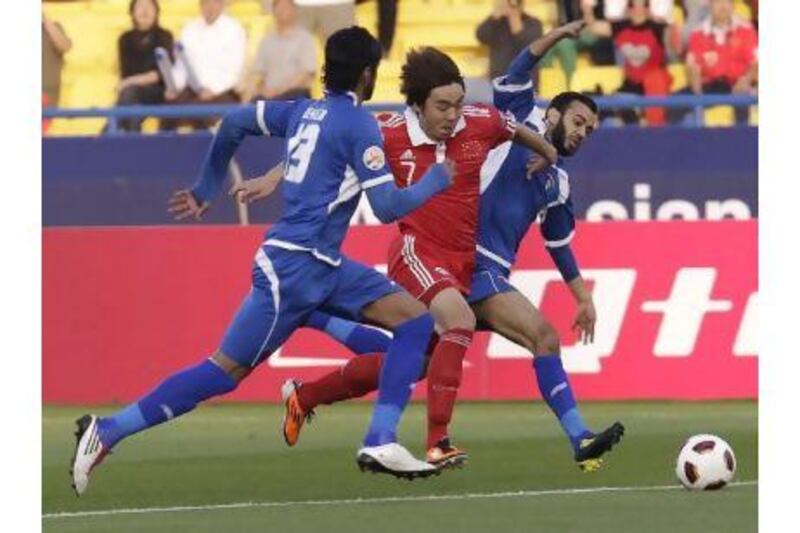DOHA // The designation of "superpower" has always been the cause of much debate in the corridors of intellect. China, however, have gradually, but almost unanimously, been accepted into that bracket.
An economic powerhouse with military might to match, the communist state also have extended their reach into the sporting arena, winning the most gold medals at the 2008 Beijing Olympics.
Strangely, however, team sports have resisted Chinese hegemony, and the greatest hurdle uncrossed is football, which remains hugely popular among the country's 1.3 billion people.
China's national team were expected to emerge as a football power sooner rather than later, and they looked to be on the path by qualifying for the World Cup in 2002, their first. But it proved to be a false dawn.
China lost all their group matches, failing to score even once. They have not come close to qualifying since, failing to advance through the preliminary Asian qualifying for the 2006 World Cup and the penultimate round four years later.
On the Asian Cup stage, China have yet to win a title; their best is two runner-up finishes 20 years apart, in Singapore 1984 and at home in 2004. Since that tournament, the team have seen three coaches come and go and failed to progress beyond the group stages at the Asian Cup four years ago.
To arrest the slide, Gao Hongbo was handed the reins of the national team in April 2009. He turned towards youth to drag Chinese football out of their morass.
The move paid dividends. Gao started his reign with a 1-1 draw against Germany in a friendly. An East Asia Championship triumph followed in early 2010, when China defeated South Korea for the first time. Then came a 1-0 victory over France in a friendly just before last year's World Cup.
"The East Asian Championship was a great boost for the team and after that we have more experience and self-confidence," said Yu Hai, the team's young midfielder. "We improved a lot after this tournament and I hope that we can show our best at the AFC Asian Cup.
"Chinese football at the minute isn't in a good situation, so we have to work hard to change something and make a contribution for Chinese football."
A 4-0 defeat against Uruguay in October blighted Gao's record, but China have won each of their four games since.
Their success will obviously put the burden of expectations on his young team, but Gao insists China's main goal from this tournament in Qatar is to test themselves and find some direction for the future.
"We want our players to pay more attention to the game and not the result here," Gao said. "These matches will be a test to see if we are heading in the right direction."
So far, the direction is "up". China opened their Asian Cup last night with a commanding 2-0 victory over Kuwait, the Gulf Cup and West Asia champions.
Zhang Linpeng broke the deadlock in the 58th minute, with a shot that deflected off Hussain Fadhel and left the Kuwait goalkeeper Yaqoub al Taher stranded. Deng Zhuoxiang doubled the tally with a stunning, Beckham-esque free-kick in the 67th minute.
Both goals came after Kuwait were reduced to 10 men in the 35th minute when Mesad Nada shoved his spikes into Yang Xu following a collision. An apparent Kuwait goal in the 49th minute was waved off.
While Kuwaiti fans sulk, the Chinese will surely be celebrating back home. Around 300 million people had tuned in to watch China at the 2002 World Cup and a staggering 170 million TV sets were sold. The numbers could rise for this Asian Cup after the winning start.
"I believe Chinese football has a bright future," said Gao, 44. "At my age I feel I will see the day China will become champion of Asia."
The sale of TV sets could surge again, particularly if China advance to the knockout rounds.





